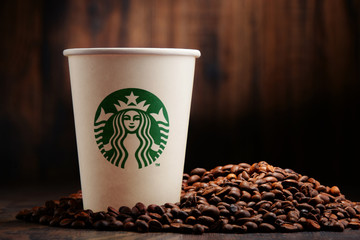Starbucks has announced the discontinuation of its digital collectible stamps program, which allowed customers to earn and purchase nonfungible tokens (NFTs), to pave the way for upcoming projects. The coffee giant’s “Odyssey Beta program” is set to end on March 31, signaling a shift in its digital engagement strategy.
The End of Odyssey Beta
The Odyssey Beta program, introduced by Starbucks, offered a unique platform where participants could earn digital stamps through coffee-related activities and challenges. These stamps provided access to exclusive benefits and interactive experiences. With the program’s closure, the marketplace for trading these digital stamps and the associated community Discord server will also cease operations.
Transition plans have been outlined, with the Odyssey marketplace moving to the Nifty marketplace, where users can continue to interact with Odyssey stamps.
Uncertain Future for Starbucks’ Web3 Endeavors
While the specific reasons behind the program’s termination remain undisclosed, Starbucks hints at the need to make room for new developments, suggesting ongoing evolution in its digital offerings. The future of Starbucks’ involvement in Web3 and potential new initiatives remains a topic of speculation.
Starbucks’ Foray into NFTs Amidst Crypto Challenges
Starbucks ventured into the NFT space with the Odyssey Beta program in September 2022, amidst a tumultuous period for the cryptocurrency industry marked by high-profile collapses and instability. Opting for the Polygon network for its lower energy consumption, Starbucks emphasized a commitment to utilizing more sustainable “proof-of-stake” blockchain technology over traditional “proof-of-work” systems.
The Broader Context of NFT Integration and Market Dynamics
The closure of Starbucks’ NFT program coincides with similar moves by other major companies, including GameStop’s exit from its NFT marketplace and Meta’s discontinuation of NFT features on Facebook and Instagram. These shifts reflect the ongoing evaluation and strategic recalibration of corporate engagement with NFTs and blockchain technologies.
Despite these retreats, industry leaders remain optimistic about the future of NFTs, envisioning their evolution beyond mere collectibles to become integral to real-world applications and industries. Predictions for 2024 suggest a maturation of NFTs into valuable tools across various sectors, including luxury fashion, precious metals, and real estate, highlighting their potential utility and value beyond digital art and profile pictures.
| Event | Detail |
|---|---|
| Program Launch | September 2022 |
| Network Choice | Polygon, due to energy efficiency |
| Program Conclusion | March 31 |
| Future Plans | Transition to Nifty marketplace; hints at new initiatives |
As the digital landscape continues to evolve, the decision by Starbucks and similar companies to reassess their blockchain and NFT initiatives underscores the complex interplay between innovation, sustainability, and consumer engagement. While the immediate future of Starbucks’ digital programs remains under wraps, the broader industry perspective on NFTs is one of cautious optimism, with expectations for their increased integration into practical, real-world applications.
The discontinuation of Starbucks’ NFT rewards program marks a moment of transition, not just for the company, but for the wider narrative around corporate involvement in the blockchain space. As the market for NFTs continues to develop, the lessons learned from such initiatives will likely inform future strategies, ensuring that digital engagement and rewards programs align more closely with evolving technologies, market dynamics, and consumer expectations.










